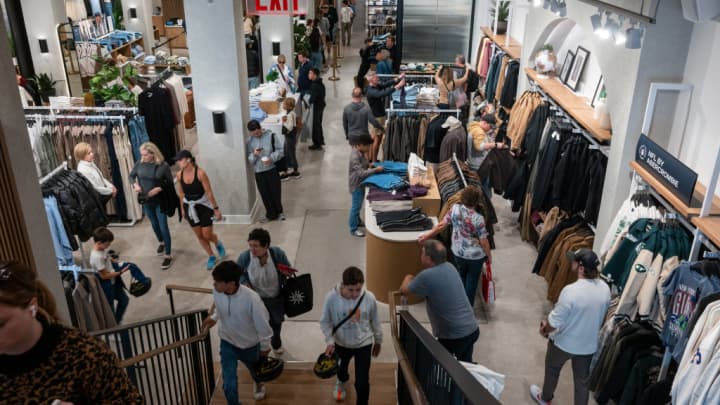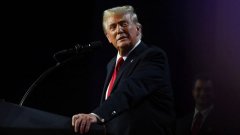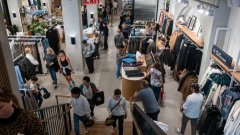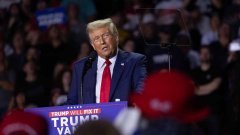
Former President 's universal proposals could cause to skyrocket on clothing, toys, furniture, household appliances, footwear and travel goods, according to a new report from the .
The study, released on the eve of Election Day, adds to the pile of economic and industry analysis warning of the inflationary impacts of the Republican presidential nominee's hardline approach to trade.
Trump has said he would impose a 10% or 20% tariff on all imports across the board. He has also floated tacking on a specifically high China rate of between 60% and 100%.
In both cases, the NRF found that the impact of Trump's tariffs would be "dramatic" double-digit percentage price spikes in nearly all six retail categories that the trade group examined.
For example, the cost of clothing could rise between 12.5% and 20.6%, the analysis found. That means an $80 pair of men's jeans would instead cost between $90 and $96. A $100 coat? That would cost between $112 and $121.
These new prices would squeeze consumer budgets, especially for low-income households that spend triple as much of their monthly budgets on apparel as high-income households spend, according to the .
The report found that the greatest price spikes could occur for toys: between 36.3% and 55.8%. The price of a $200 crib would also rise to between $213 and $219.
On the macro level, those price increases would also erode consumer spending. The report found that the more expensive retail goods would lead to a $46 billion decrease in purchasing power, if Trump imposes both universal tariffs and especially high China rates.
"Broad-based tariffs on the scale former President Trump has proposed will act as a massive tax increase on American families as they pay more for all imports, cutting into their purchasing power and thus weighing heavily on their spending and the overall economy," Chief Moody's Economist Mark Zandi told CNBC.
The report did not factor in Trump's new proposal, announced Monday, to impose a 25% tariff rate on Mexico if the country does not impose stricter border regulations, which he announced at his rally in Raleigh, North Carolina.
Vice President Kamala Harris has capitalized on the economic criticism of Trump's broad tariff plans, framing them as a "Trump sales tax" on American consumers. Instead, she favors a more targeted approach to the duties.
But many voters respond well to Trump's tariff proposals, feeling that years of free trade decimated factory towns across America.
However, Trump's tariffs during his first presidential term, including duties on foreign metals and washing machines, failed to raise the overall number of jobs in the relevant industries, a nonpartisan found.
"If higher taxes are placed on these imports from China, their production will move to other less developed countries," said Mary Lovely, a senior fellow at the Peterson Institute for International Economics.
Given the relatively higher wages in the U.S., Lovely said, "it is very unlikely that many jobs will be created in these industries."
That means Americans won't see additional jobs but will see prices rise.




